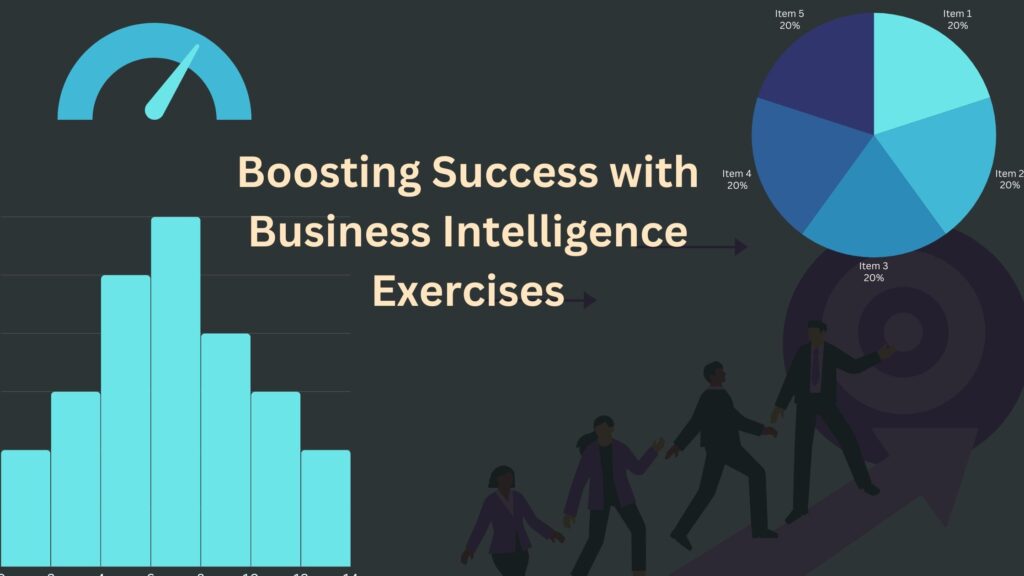Introduction
In today’s data-driven world, business intelligence (BI) is crucial for companies aiming to make informed decisions and gain a competitive edge. This guide provides an in-depth look at the top business intelligence companies in 2024, helping you understand the landscape and choose the right solution for your needs.
What is Business Intelligence?
Business intelligence refers to technologies, applications, and practices for the collection, integration, analysis, and presentation of business information. The goal of BI is to support better business decision-making. With BI, companies can transform raw data into meaningful insights that drive strategic planning.
Top Business Intelligence Companies in 2024
- Gartner
- Overview: Gartner provides in-depth reports and market analysis, helping companies understand the latest trends in business intelligence.
- Key Features: Executive summaries, key findings, insights.
- Why Choose Gartner: Trusted source for unbiased research and analysis.
- Forbes
- Overview: Forbes offers a range of articles, opinion pieces, and interviews focused on business intelligence trends and insights.
- Key Features: Engaging content, expert opinions, industry analysis.
- Why Choose Forbes: Comprehensive coverage of BI from a business perspective.
- IBM
- Overview: IBM delivers robust analytics solutions, including AI and machine learning, to enhance business intelligence.
- Key Features: Data management, AI integration, enterprise solutions.
- Why Choose IBM: Cutting-edge technology and comprehensive analytics tools.
- Tableau
- Overview: Tableau specializes in data visualization, making it easy for users to create interactive and shareable dashboards.
- Key Features: User-friendly interface, powerful visualization tools, extensive tutorials.
- Why Choose Tableau: Best-in-class data visualization and ease of use.
- Microsoft Power BI
- Overview: Power BI offers robust business analytics tools that connect to hundreds of data sources and create dynamic reports.
- Key Features: Data integration, real-time analytics, user-friendly dashboards.
- Why Choose Power BI: Seamless integration with Microsoft products and comprehensive analytics capabilities.
- Qlik
- Overview: Qlik provides powerful BI tools that help organizations transform their data into valuable insights.
- Key Features: Data integration, interactive dashboards, Qlik Sense.
- Why Choose Qlik: Strong focus on data integration and user-friendly analytics.
- Sisense
- Overview: Sisense offers embedded analytics and data integration solutions tailored to specific business needs.
- Key Features: Customizable dashboards, embedded analytics, customer success stories.
- Why Choose Sisense: Highly customizable and scalable BI solutions.
- MicroStrategy
- Overview: MicroStrategy provides enterprise analytics and mobility solutions, enabling organizations to make data-driven decisions.
- Key Features: Data discovery, enterprise analytics, mobile BI.
- Why Choose MicroStrategy: Enterprise-grade analytics with mobile capabilities.
- Domo
- Overview: Domo connects your data, people, and systems, helping you leverage real-time data to make better decisions.
- Key Features: Cloud-based analytics, data visualization, collaborative tools.
- Why Choose Domo: Real-time data access and cloud-based solutions.
- Oracle
- Overview: Oracle offers comprehensive business intelligence and data management solutions to help organizations optimize their operations.
- Key Features: Cloud analytics, data management, enterprise solutions.
- Why Choose Oracle: Robust and scalable solutions for large enterprises.
Must Read : Utilities Business Intelligence
Key Trends in Business Intelligence for 2024
How to Choose the Right Business Intelligence Solution
- Identify Your Needs
- Assess your business requirements and determine the key features you need in a BI tool.
- Consider factors such as data sources, user access, and scalability.
- Evaluate Key Features
- Look for features like data visualization, integration capabilities, AI and machine learning, and real-time analytics.
- Ensure the tool provides an intuitive and user-friendly interface.
- Consider Scalability
- Choose a solution that can grow with your business and handle increasing data volumes.
- Look for cloud-based solutions that offer flexibility and cost efficiency.
- Review Customer Support
- Ensure the vendor provides reliable customer support and resources for troubleshooting and learning.
- Check for availability of tutorials, webinars, and user communities.
- Compare Costs
- Evaluate the cost of the solution, including licensing fees, implementation, and ongoing maintenance.
- Consider the return on investment and potential cost savings from improved decision-making.
Conclusion
Choosing the right business intelligence company is crucial for leveraging data to drive strategic decisions. By understanding the top players in the BI industry and considering key trends and features, you can make an informed choice that aligns with your business goals. Stay ahead of the competition with a robust BI solution that empowers your organization to turn data into actionable insights.




